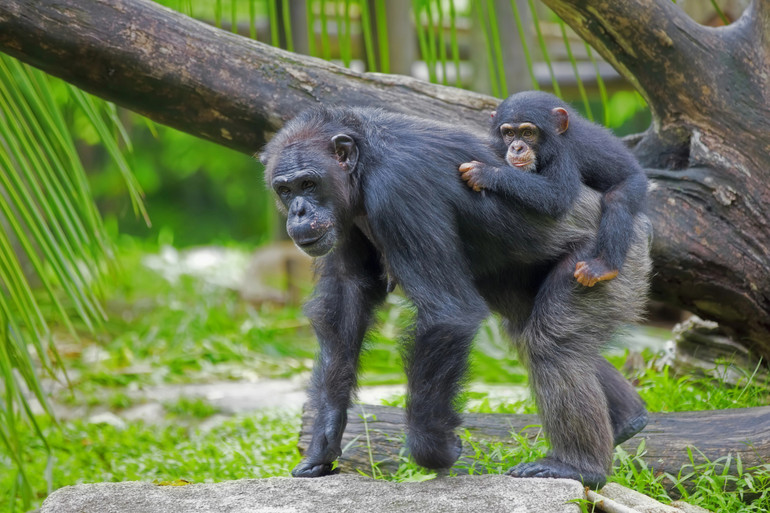How monkeys mock each other: research
[ad_1]
Scientists from the USA investigated “sense of humor“ in animals and found that they can tease each other. They managed to isolate 18 forms of playful behavior in great apes (chimpanzees, bonobos, gorillas and orangutans). Most often, they pushed each other, took objects and pulled each other by the hair.
Researchers analyzed 75 hours of video recorded at the San Diego Zoo of animals interacting with each other. Research results, published in the scientific journal The Royal Society, show that chimpanzees mocked each other more often, and bonobos less often.
Scientists tried to find out whether animals do this on purpose. The scientists found that the monkeys chose an individual to make fun of: they teased and repeated their actions if there was no reaction to them. At the same time, the monkeys expected a response.
“We often observed a cub sneaking up from behind an adult monkey who was busy caring for another monkey and kicking it or hitting it on the back, sometimes even suddenly.
Then they waited for the adult’s reaction. They usually just ignored them, and so the cubs continued to tease and behave in ways that made it harder and harder to ignore them. Sometimes they even beat adults with their whole bodies.” – said biologist Isabelle Laumer.

Biologists say that the teasing was also playful. In 40% of cases, the scientists noticed signs of pleasure in both monkeys – by their relaxed behavior.
In about a quarter of the cases (24%), the researchers observed a reversal of roles, when the subject later directed their behavior at the person who teased them earlier.
41% of the games were of a rough nature – simulated bites, wrestling, chasing and tickling. Also, 30% of teasing was spontaneous and voluntary. In 42% of cases, both animals were in a relaxed state before the interaction began.
“To joke like people, you need to have quite complex cognitive abilities. You need to have theory of mind (the ability to imagine the world from another’s point of view), know social norms and be able to predict the reactions of others.” Laumer said.
Observing the behavior of four species of apes that are capable of playful teasing offers a chance to understand the evolution of a sense of humor, the researchers add.
We used to toldthat the giant apes probably went extinct due to climate change.
[ad_2]
Original Source Link











